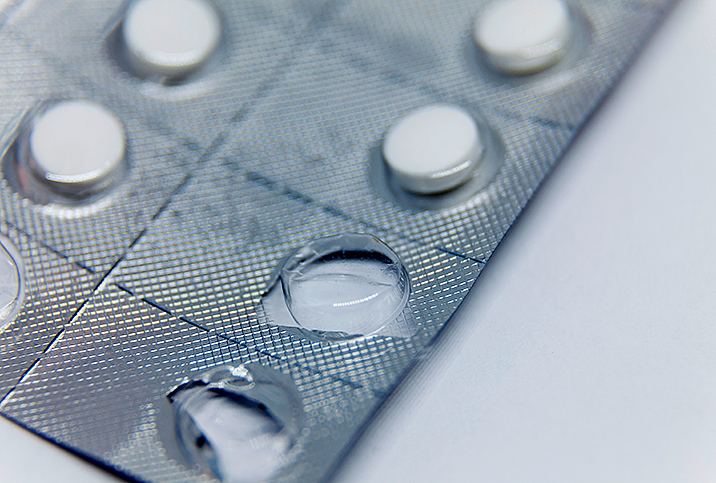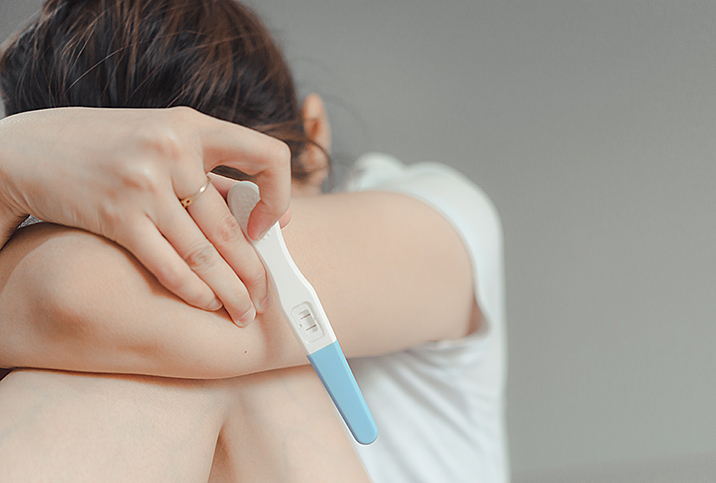What to Expect Postabortion

A common refrain is there's no way to outlaw abortion, only safe abortion. A total of 629,898 abortions were reported nationwide in 2019, according to data from the Centers for Disease Control and Prevention (CDC). This figure comes with an important caveat: It includes only medically procured abortions, not self-induced abortions.
While obtaining an abortion can be intense at best, pursuing an abortion overseen by a medical professional is always the best route for safety both during and after the procedure. The side effects may differ from person to person, but this truth remains.
A little bleeding and cramping is normal
"After an abortion, it is normal to have bleeding like a period and some cramping pain. Depending on the type of medication used for the procedure, there may be some nausea or drowsiness. It's common to feel exhausted," said Sara Twogood, M.D., a board-certified OB-GYN in Los Angeles and co-founder of Female Health Education.
The difference between bleeding and excessive bleeding is essential. While some blood is unavoidable, excessive bleeding may indicate a part of the pregnancy remains. This would require almost immediate medical care.
"Menstrual blood clots may be up to the size of a lemon, but only one lemon. You shouldn't be passing multiple," said Adrienne Crowe, a Denver-based certified nurse-midwife and mother of the author. "Compare your bleeding post-procedure to your typical flow during a period to determine whether or not what you're experiencing is excessive, but remember: better safe than sorry."
Healing should steadily progress
Your symptoms should ease over time.
"The next day [after the abortion], these symptoms may still linger but will likely be much improved. It's normal to have bleeding for a week or so following an abortion. The cramping is expected to get less and less every day," Twogood said.
You should generally feel better with each passing day, and symptoms other than menstrual bleeding should be fairly straightforward. In cases of nausea, recovering patients are recommended to eat bland, low-fat foods, such as rice and minimally seasoned boiled meats. Using aspirin should be done with a medical provider's guidance.
If you're unsure if your bleeding or any other symptoms are normal, it's best to make an appointment with your physician.
"Better to come in, have an ultrasound to check there's no part of the pregnancy that's been left behind than to risk an infection," Crowe said.
It's important to note that complications postabortion are rare, with the total complication rate estimated at 2 percent. This percentage includes both minor complications, such as pain, bleeding and infection, and serious complications, such as hemorrhaging and other life-threatening issues. As Crowe stated, it's always better to be safe than sorry, so if you have any concerns about what you're experiencing, consult a medical professional right away.
Postabortion care is essential
Crowe advised heightened hygienic practices for the duration of any and all postabortion bleeding.
"The cervix may be slightly open following an abortion and, thus, more receptive to bacterial infection, meaning all penetrative objects should avoid contact with the vagina. This includes conventionally sterile objects, like tampons, as some particles could potentially enter the womb and cause complications," she explained.
In some cases, your doctor may prescribe antibiotics.
"Remember that antibiotics disrupt hormonal contraceptives," Crowe said. "To avoid subsequent pregnancy, menstruating individuals receiving antibiotic care should, one, take the entire course of medication and not stop taking the medication when they start feeling better, and two, use sexual barrier during the antibiotic course and for a week after."
Hormonal changes may also lead to unexpected symptoms. While every person differs, the pregnancy hormones you possess have taken weeks to accumulate and won't disappear overnight.
"In cases of spontaneous miscarriage—and an abortion is a sort of assisted miscarriage—obstetricians will track a woman's pregnancy hormones," Crowe explained. "They may subside to nonpregnancy levels in a matter of weeks or days, everyone is different, but they should be decreasing. Any increase means there's leftover material present in the womb and that's not good."
The emotional aftermath
The unseen recovery symptoms are just as relevant as the seen. These include both hormonal and emotional changes. While some people may experience no negative emotions postabortion, others may need time to work through the experience. No response is wrong.
Crowe acknowledged the emotional intensity of abortion, even in people raised without cultural stigma surrounding the procedure.
"Of course, it's impossible to grow up within our society and completely avoid all prejudice against this kind of reproductive care, but even women raised with neutral or fairly positive views around abortion may struggle emotionally," she said. "A mother's first decision should always be whether or not she should be a mother in the first place. It's a big decision, but it's your decision."
It doesn't require medical training to know that self-care is necessary following an abortion. The intricacies of self-care, however, can benefit from medical guidance.
Even with a straightforward recovery, this is an opportune time to reflect on your experiences with a therapist. Consider the environment in which you were raised; even if dominant beliefs have long since lost relevancy in how you live, they may reemerge—even subliminally—in the days and weeks following an abortion.
If you experience anxiety or depression outside of what's normal for you even months out (and only you can be sure of this), don't feel at all required to tell potentially judgmental friends or family. This isn't keeping a secret; there's just no reason to risk that negativity until you're in a more stable place.
If you have friends who have undergone abortions, they may be receptive to discussing their experience with you. If the experience is still too fresh for them, it's important to respect their boundaries.
Menstruation postabortion
"A period can be expected about four to eight weeks after an abortion. An intrauterine device (IUD) can be inserted immediately following the procedure; that is actually a great time to have it done," Twogood said.
The placement of an intrauterine device is typically more physically taxing than having one removed, so consider whether you wish to take this proactive measure. Some factors to ponder include your health, whether this is your first abortion (if so, you may wish to play it safe and wait) and your plans for sexual activity going forward.
The severity of postabortion recovery really depends on how far along you are in the pregnancy. Most abortions occur during the first trimester and are less severe, while late-term abortions carry the most severe side effects. Taking time off from work when possible or timing your abortion around a long weekend may be beneficial to give yourself space to heal.
Abortion is a medical procedure that is currently illegal or restricted in some portions of the United States. For more information about the legality of abortion in your area, please consult a local healthcare provider.


















